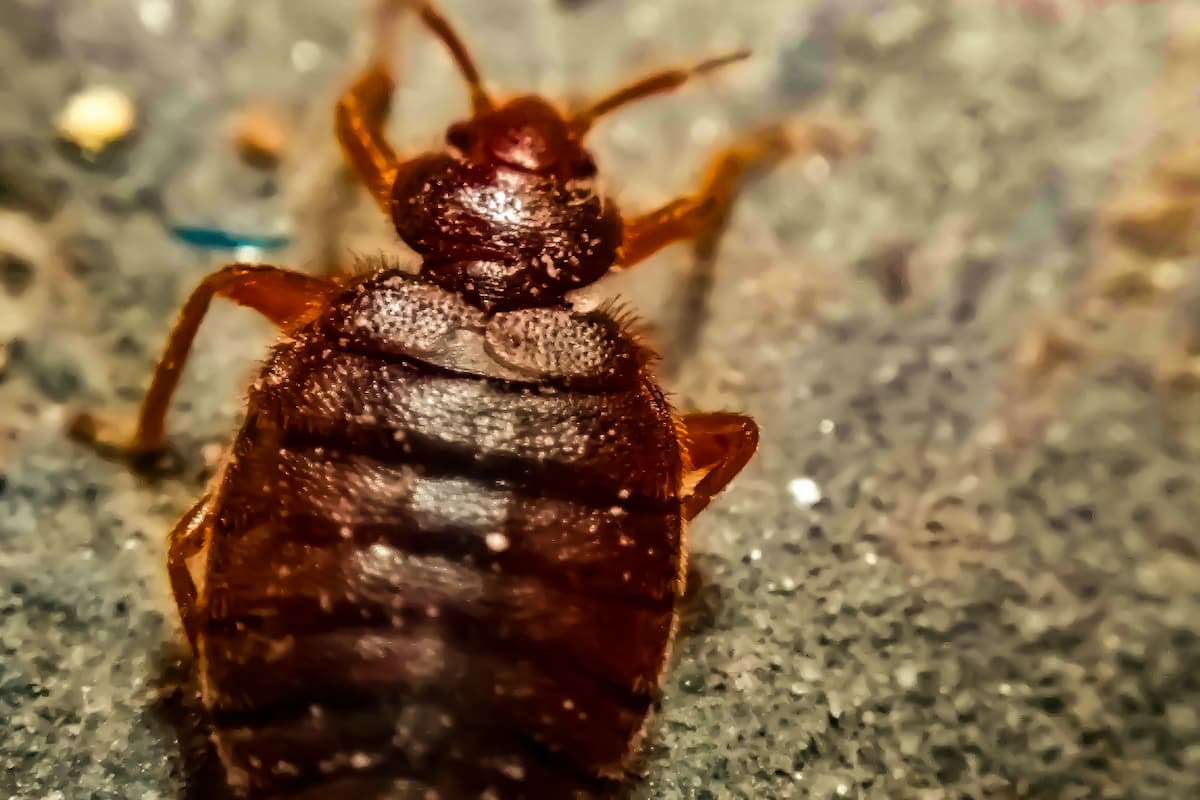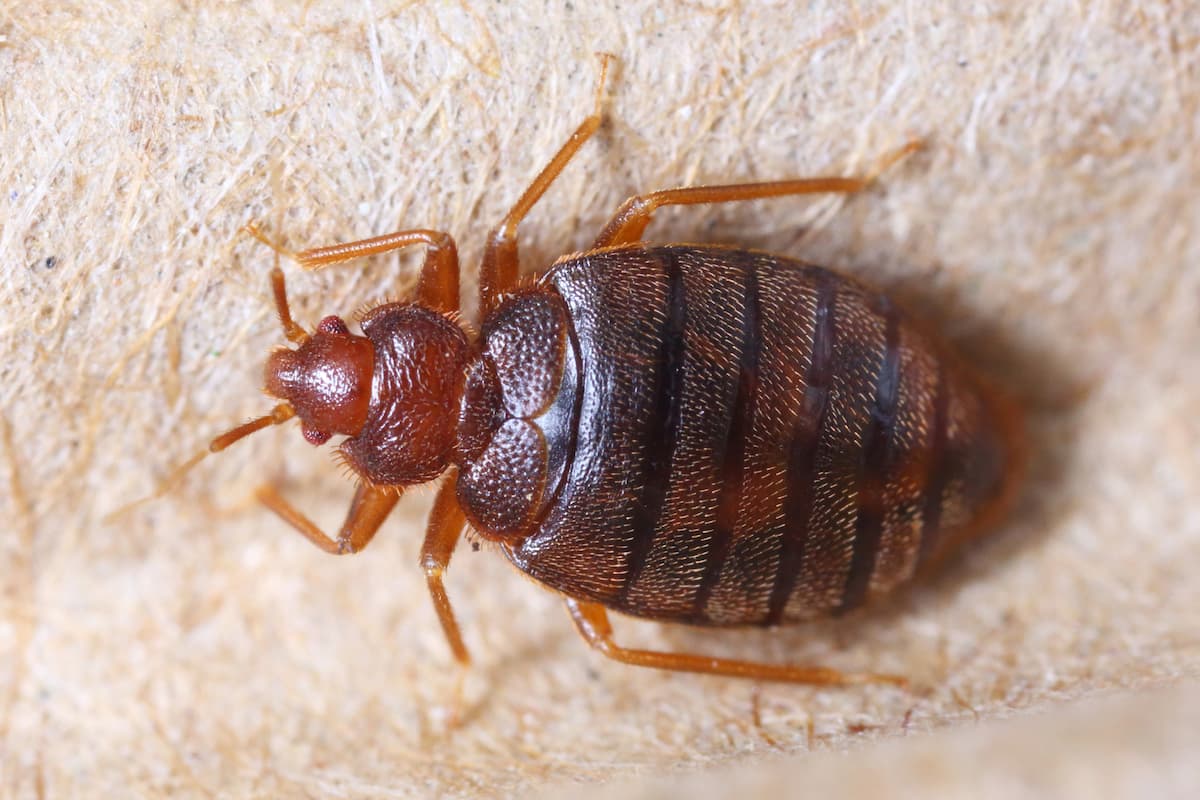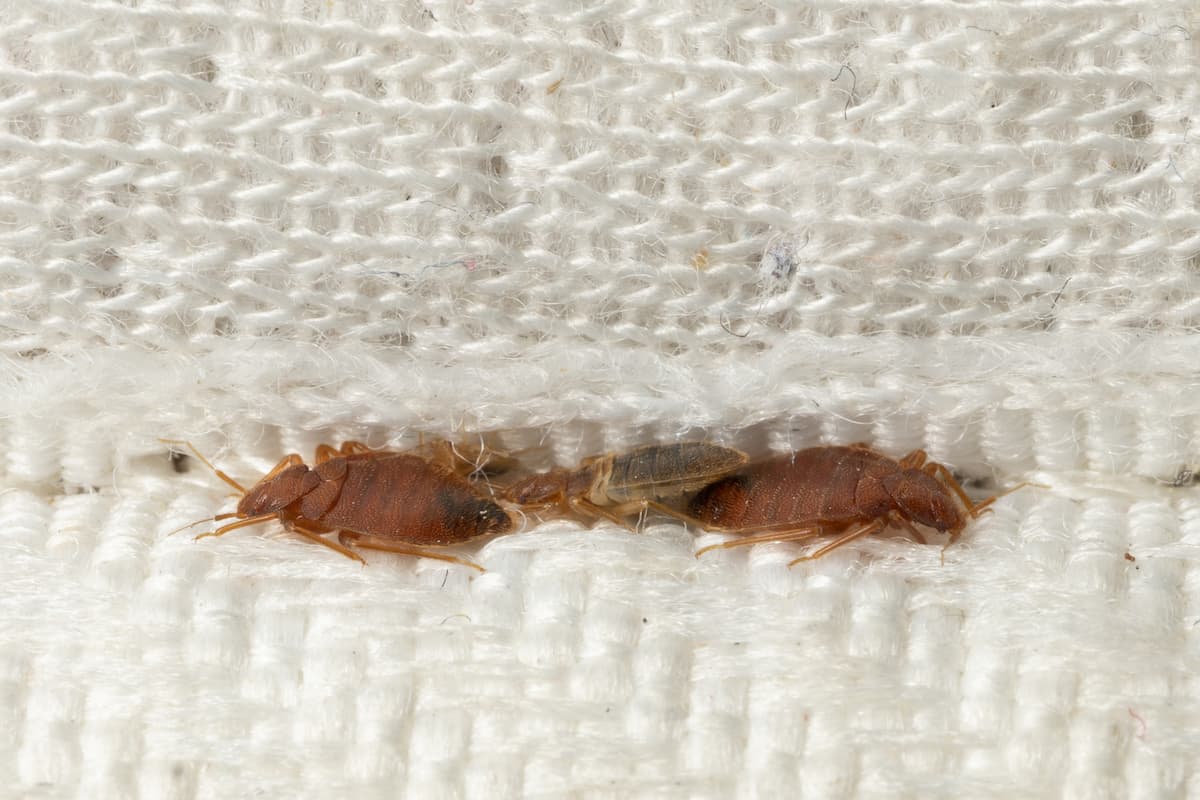Are Bed Bugs Blind? (According To Scientists)
Remember the old adage, “know thy enemy?”
Well, in the case of bed bugs, every bit of knowledge helps.
So, if you’re fighting an infestation, it’d be good to know, are bed bugs blind?
Scientists aren’t entirely sure if bed bugs are blind, but most believe that they probably do have some vision. And because they can’t see well, they have to use other means to find a host, such as seeking out heat and carbon dioxide.
Can Bed Bugs See?

As of now, scientists aren’t sure if bed bugs can see or not.
However, most believe that they probably either have poor vision or they can’t see at all.
Overall, being blind makes sense because bed bugs hunt for hosts at night when there is little to no light.
So, it is plausible that they would have evolved to find people in other ways besides sight.
Yet, there is some evidence that bed bugs can see color and shapes, so nothing is yet conclusive.
Do Bed Bugs Have Eyes?
Yes, bed bugs have eyes.
If you look closely at a bed bug, you can see the eyes on the sides of its head.
But, having eyes doesn’t necessarily mean a creature isn’t blind.
For example, naked mole rats have eyes but can’t see much of anything.
Also, the Texas blind salamander has what appear to be eyes, but it can’t see with them.
So, it isn’t impossible for bed bugs to be entirely or almost entirely blind despite having eyes.
Furthermore, although they do have eyes, bed bugs don’t have ocelli, which are extra eyes that many insects have.
The ocelli are where the retina and the vast majority of the receptor cells should be.
So, from this information alone, we can say that bed bugs probably either can’t see or can not see well.
How Do Bed Bugs Find a Host if They Can’t See?

Researchers believe that bed bugs find their hosts by sensing heat and carbon dioxide, both of which humans give off.
Basically, how it works is that bed bugs start their search for a host by wandering around until they detect a human by sensing the carbon dioxide they exhale.
And if they are already living in your mattress, they typically don’t have to look that hard for you.
Then, the bed bug will follow the heat from a person’s body until they reach their skin.
Next, they search the skin for a blood vessel.
This step can take some trial and error, which is why one bed bug can sometimes leave lots of bites.
But, once they find the blood vessel, they feed, usually from three different spots, before retreating back to where they were living.
Why Are Bed Bugs Nocturnal?
It would make more sense for an insect to feed during the day so that it can better use what vision it may have, right?
So, why do bed bugs prefer to eat after dark?
Well, bed bugs like to snack on us when we’re sleeping because it’s easier to feed on a host that’s not moving.
Furthermore, if they fed during the day when we’re awake, there’s more of a chance we would spot them and squish them.
But, you should also know that bed bugs don’t always eat at night.
If they are hungry, they will feed on a host as soon as they find one, no matter what time it is.
How Do Bed Bugs Find a Place to Live?

Bed bugs will typically set up camp after they find a human host.
That’s why they favor sleeping inside mattresses.
Yet, overall, scientists have determined that bed bugs like to live in warm places, even if it isn’t your bed.
Thus, they prefer to settle and lay their eggs in or on materials made of fabric, cardboard, wood, and plaster.
Meanwhile, they usually avoid objects that stay cool, like metal, concrete, and glass.
For the most part, scientists presume that bed bugs choose their living area by their sense of touch rather than sight.
Frequently Asked Questions About Bed Bug Behavior
In the following sections, I’ll answer some more common questions about the behavior of bed bugs to help you understand the little creatures better.
Do Bed Bugs Like Dirty Houses?
Bed bugs do not care if your home is clean or dirty.
They are only concerned with whether they have blood to eat, meaning they aren’t picky when choosing a house.
As long as someone brings them into a home, they are there to stay and won’t leave until the occupants exterminate them.
Are Bed Bugs Intelligent?
When it comes to intelligence, it’s difficult to determine how smart bed bugs are.
However, one thing is for sure, and that’s that they’re great at hiding out and making certain humans can’t get to them.
How much of this is instinct and how much is actual intelligence is hard to say, though.
Do Bed Bugs Bite Every Night?
No, bed bugs do not feed every night.
Typically, a bed bug will go about one to two weeks without eating.
Yet, if you have bed bugs, you may still wake up with new bites every morning because different bugs in a colony will feed at different times.
Why Can’t I Feel a Bed Bug Bite?
Chances are you never woke up when a bed bug was biting you.
You don’t awaken mainly because bed bugs inject you with an anesthetic when they bite to keep you from feeling them.
This maneuver allows the bed bug to remain sneaky so that you don’t wake up and squish it.
Can Bed Bugs Move Fast?
Bed bugs can move pretty fast relative to their size.
At top speed, an adult bed bug can travel 4 to 5 feet (1.2 to 1.5 m) per minute.
Conclusion
Scientists aren’t really sure how well bed bugs can see.
However, most researchers agree that if they do have any vision, it’s not great.
Thus, bed bugs have to use other senses to find a host.
